Keywords: Horror
There are more than 200 results, only the first 200 are displayed here.
-
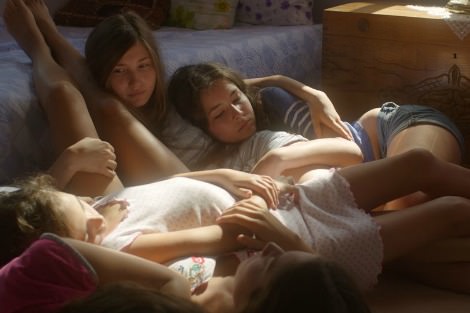
ARTS AND CULTURE
- Tim Kroenert
- 14 December 2016
3 Comments
Amid the noise of Batman battling Superman, the Avengers turning against each other, and middle aged fanboys whingeing about the Ghostbusters franchise being revitalised with an all-female lead cast, 2016 has actually been a pretty solid year for movies, both in and outside of Hollywood. We haven't had time to see them all (we have a magazine to publish, after all) but nonetheless here is a list of our ten favourite films reviewed in Eureka Street this year.
READ MORE 
-

AUSTRALIA
- Brian Matthews
- 03 November 2016
4 Comments
Curiously, while privacy continues to be valued and sought in the 21st century perhaps more strenuously than ever before, its milieu is once again the furious turmoil of aggressively public revelation, exhortation and threat that distinguished Johan Huizinga's scarifying portrait of the medieval world, in his book The Autumn of The Middle Ages. In our age, 'all things in life' once again have 'about them something glitteringly and cruelly public'. Or to put it another way, we have social media.
READ MORE 
-
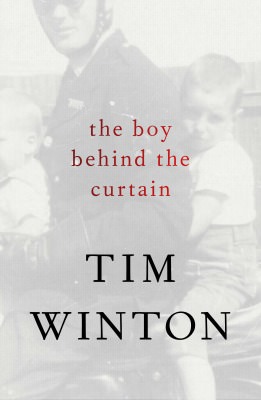
ARTS AND CULTURE
- Tim Kroenert
- 26 October 2016
1 Comment
'When I was a kid I liked to stand at the window with a rifle and aim it at people.' So begins the opening, titular essay. It is a singularly arresting entre to an essay that charts the author's complex relationship with firearms (part awe, part terror), by way of commenting on the place of guns in Australian society. In this collection of essays Winton adopts this mode frequently, weaving (sometimes deeply) personal narratives into stirring, thoughtful commentary on a broad range of social and political issues.
READ MORE 
-

ARTS AND CULTURE
- Tim Kroenert
- 19 October 2016
Our first glimpse of Jesse, a 16-year-old model recently arrived in LA, is of her sprawled on a sofa, scantily clad and smeared with fake blood. Later, during her first professional shoot, she is ordered to strip naked, and to endure being smeared with gold paint by the photographer's own hand. Another model boasts about the routine cosmetic surgery she undergoes to maintain the object that is her body. In the eyes of the industry, Jesse as an 'object' is already perfect.
READ MORE 
-

ARTS AND CULTURE
- Tim Kroenert
- 12 August 2016
1 Comment
There's a bagel character, coded as Jewish, and a lavash (Armenian flatbread), coded as Palestinian, who clash because they have to share an aisle. 'Isn't the aisle big enough for both of you?' asks Frank. In this and other ways the film points to the destructive power of religious belief corrupted by self- or socio-political interest. On the other hand it ignores the role religion can play in developing robust ethical thinking about the ways in which we can interact meaningfully with others and the world.
READ MORE 
-

ARTS AND CULTURE
- Lesley Lebkowicz, Andrew Madigan, Barry Gittins
- 02 August 2016
1 Comment
My friend, new to Mandalay, never before in Asia, sighs as she sees the east- and west-bound cars and rickshaws slow to a ragged fringe across the intersection. The north- and south-bound take their turn in the same gentle, fearless lack of order. Ah, she says, see how aware they are, each of the other. Such harmony: you can tell it's a Buddhist country. Spoilsport, I point to where, so easily ignored, enmeshed in a thicket of wire overhead, lights flicker: green, amber, red.
READ MORE 
-

RELIGION
- Frank Brennan
- 01 August 2016
Inspired by the person Ignatius, inspired by the person Jesus, we are motivated to make a difference; we are passionate to seek justice for all, especially the poor and the marginalised; we are convinced that we can find God in all things, even in the Don Dale Detention Centre; we know that all persons are called to a deep interior freedom, even those prison guards with hardened hearts; we are convinced that the law of the Lord teaches us right from wrong and that the ways of the Lord inspire us to do and proclaim what is right and to denounce what is wrong, especially when the wrong is done by the powerful upon the powerless.
READ MORE
-
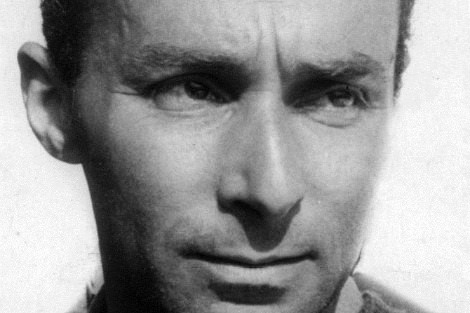
AUSTRALIA
- Brian Matthews
- 25 July 2016
10 Comments
Holocaust survivor Primo Levi wrote If This is a Man to carry out what he saw as the critical task of bearing witness, and he became one of the greatest writers of the 20th century as he continued to bear witness one way and another in later books. Some day, one of Australia's asylum seekers will, like Levi and with the same sense of dread and horror, tell his or her story to ensure that someone bears witness; and to confirm that all of us are implicated.
READ MORE 
-
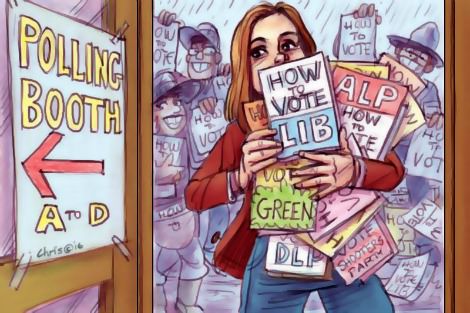
AUSTRALIA
- Neve Mahoney
- 29 June 2016
18 Comments
Honestly, I could talk all day about how growing up with Rudd/Gillard/Rudd followed by Abbott/Turnbull turned a generation away from politics. I could talk even longer about how seeing (mostly) white, (mostly) male politicians is its own form of alienation. But if I'm going to be the possible swing vote, the homogenous 'youth vote', I'm going to make it count. I know that I can't afford to disconnect; if for nothing else, I need to vote for the people who can't.
READ MORE 
-
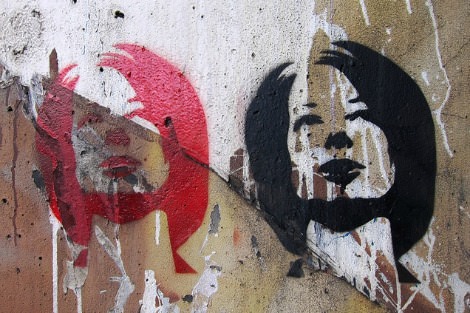
AUSTRALIA
- John Warhurst
- 31 May 2016
16 Comments
When the big parties condemn the idea of a hung parliament it is just self-interest, as when both Malcolm Turnbull and Bill Shorten expressed their horror at the prospect of any sort of alliance with the Greens. It was surprising that Shorten missed the opportunity to defend the legacy of the Gillard government, a successful minority government which executed a considerable legislative program. If he allows 2007-13 to be portrayed as disaster years it will hurt his chances of becoming prime minister.
READ MORE 
-
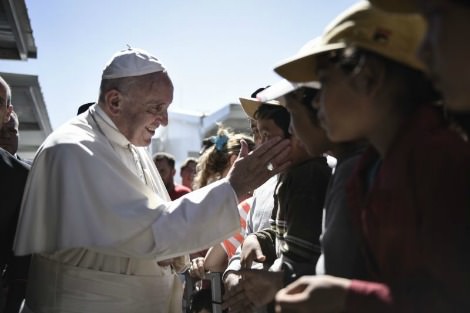
RELIGION
- Andrew Hamilton
- 19 April 2016
15 Comments
Lesbos is famous for crossing boundaries. It was the home of the poet Sappho and the tender, delicate lyrics dedicated to the woman who was her lover. More recently it has been the home of refugees who have crossed from the murderous conflict in Asia. Pope Francis is also as famous for crossing boundaries as we Australians are for patrolling them. He is reinventing the papacy as a one-man barbed-wire-cutting team. So it is not surprising he decided at short notice to cross into Lesbos.
READ MORE 
-
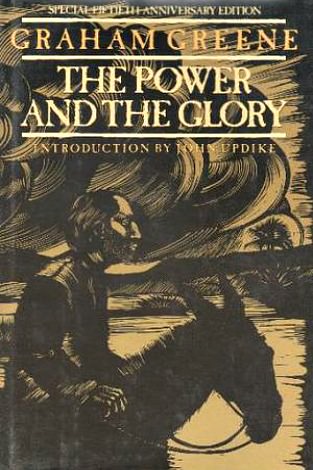
INTERNATIONAL
- Gillian Bouras
- 19 April 2016
10 Comments
Pope Francis recently visited the island of Lesbos, another scene of immigrants' dire suffering, and surprised the world by taking 12 refugees back to Rome with him. Bernie Sanders asserted that the Pope, in his gesture of hope, is surely the greatest demonstration against a surrender to despair. I am still partly persuaded by Graham Greene's view of despair as being the unforgivable sin, but I'm also giving some thought to the distressing matter of indifference.
READ MORE 